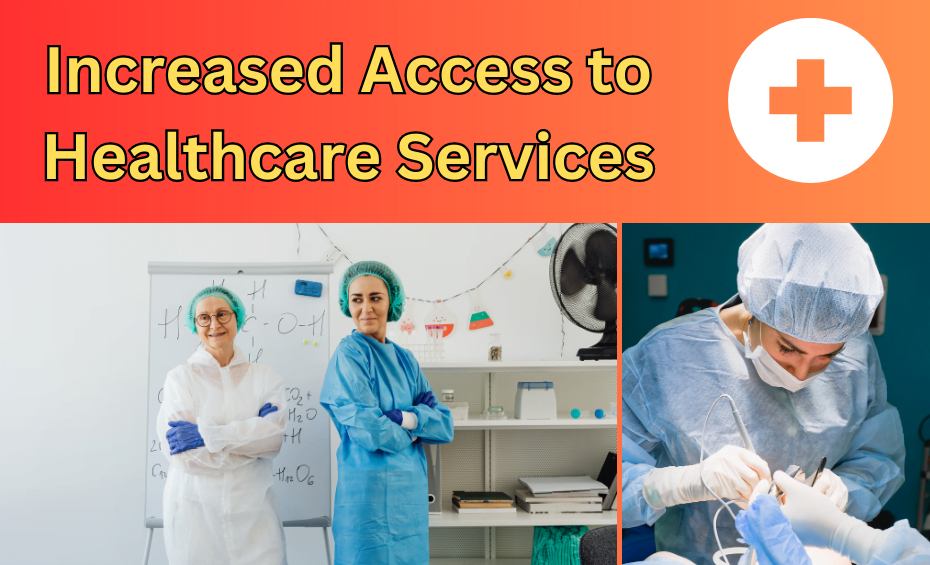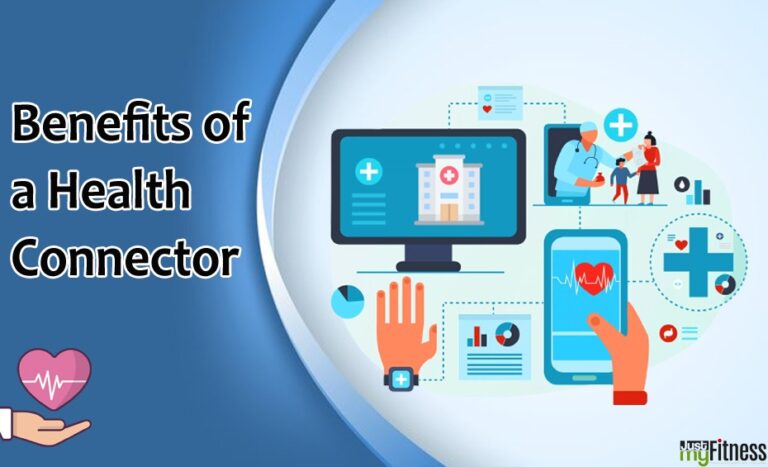A health connector is a valuable resource that helps individuals connect with healthcare services and overcome barriers to care. Navigating the healthcare system can be problematic and overwhelming, especially for those needing access or experience with medical management assistance. This article outlines the role and benefits of these connectors in linking people to medical benefits. This also explores how they can help individuals access affordable and high-quality healthcare.
What is a Health Connector?
A health connector is a program or service that allows people to bind with medical suitability. These include health insurance enrollment and finding medical management providers. These work to facilitate access to healthcare by providing education, support, and resources. This includes especially those who may face challenges when finding complex healthcare procedures.
These programs aim to improve healthcare access and outcomes by bridging the gap between individuals and medical management benefits. Health connectors are available at both the state and federal levels. These often work with healthcare providers and insurance companies to ensure individuals receive the necessary care.
Importance of a Health Connector in Connecting to Healthcare Services
Accessing healthcare services can be complex for those with limited resources or medical management systems’ experience. Health connectors help bridge the gap between individuals and healthcare services by supporting enrollment in medical management plans. It provides education on healthcare options and advantages. Facilitating access to health maintenance providers is another feature.
The value of health connectors is evident because they ensure that individuals receive high-quality care regardless of socioeconomic status, location, or educational level.
The Role of Health Connectors
The role of a health connector includes the following:
- Assisting individuals in navigating healthcare systems.
- Educating them about healthcare options.
- Facilitating health insurance enrollment.
- Providing support and assistance throughout the health maintenance journey.
Assisting Individuals in Navigating Healthcare Systems
Health connectors are crucial in assisting individuals in navigating complex healthcare systems. They serve as a resource to individuals and families. They offer guidance in selecting an appropriate health insurance plan. They even help find a primary care provider or medical specialist and access other healthcare services. They provide information on eligibility conditions and financial aid programs available to help individuals access healthcare usefulness.
Educating About Healthcare Options
Health connectors educate individuals and communities on healthcare options by sharing information on different aspects of fitness. These include healthcare plans, preventive healthcare services, and available healthcare resources. They raise awareness of health and wellness practices. It even promotes healthy behaviors. They likewise help individuals understand how to access resources and information that support their health and well-being.
Facilitating Health Insurance Enrollment
People can enroll in health insurance schemes, including Medicaid and the Health Insurance Marketplace, with the assistance of health connectors. It equips eligibility and enrollment assistance. They aid individuals in guiding the enrollment process and understanding their options. They also ensure that individuals select the most appropriate health insurance plan.
Providing Support and Assistance Throughout the Healthcare Journey
Health connectors provide ongoing support and assistance throughout the healthcare journey by linking individuals with resources to address their healthcare needs. They help individuals access preventive and primary medical care. They assist them in managing chronic conditions and finding additional healthcare services.
Health connectors also administer in steering the healthcare system and resolving issues. They also advocate for individuals seeking healthcare services.
Benefits of a Health Connector
Health connectors offer several benefits.
Increased Access to Healthcare Services

One of the primary benefits of utilizing a health connector is increased access to healthcare services. It helps individuals overcome barriers to accessing healthcare. These can be a lack of transportation, limited availability of healthcare providers in their area, or even language barriers.
Health connectors also provide information on available healthcare services and resources, such as preventive care, medical treatments, and support services.
Reduced Healthcare Costs
Another benefit of using a health connector is the potential for reduced healthcare costs. It provides information on affordable healthcare options, such as low-cost health insurance plans and available financial assistance programs. It can also help individuals save on healthcare costs by educating individuals on these options.
Improved Health Outcomes
Utilizing a health connector can also lead to improved health outcomes. IT helps people access preventative care services, such as regular check-ups and medical screenings. This will ultimately result in detecting health problems early and preventing serious illnesses. They can also facilitate the early diagnosis and treatment of chronic conditions, leading to better health outcomes in the long run.
A Greater Understanding of Available Healthcare Options
Lastly, they permit individuals better understand the available healthcare alternatives. Health connectors guide available healthcare services and education on accessing and utilizing these services. Through this instruction, people can become more informed and empowered healthcare consumers.
How a Health Connector Works
The process of using a health connector typically involves several steps. These steps may include
- Deciding eligibility for available healthcare programs and plans.
- Selecting a healthcare plan that meets the individual’s needs.
- Enrolling in the chosen method.
- Acquiring ongoing support and assistance from the health connector throughout the healthcare journey.
Eligibility Requirements
The eligibility requirements for using a health connector may vary depending on the specific program or service. Individuals may often need to meet specific income requirements or other criteria to qualify for assistance. They can guide eligibility conditions and assist individuals in determining which programs or plans they may be eligible for.
Specific Services Offered by a Health Connector
They offer various services to help individuals connect with healthcare services. Some of the specific services that they may provide include:
- Assistance with enrolling in health insurance plans, such as Medicaid or the Health Insurance Marketplace
- Education on available healthcare services and preventive care options
- Guidance on selecting healthcare providers and finding healthcare services in the individual’s area
- Connecting individuals with support services and resources, such as prescription assistance programs or transportation services
- It provides ongoing support and assistance throughout the healthcare journey, including resolving issues, advocating for individuals, and helping individuals access healthcare benefits.
Conclusion
In a nutshell, Health connectors aid by familiarizing resources and usefulnesses to people. Using it typically involves determining eligibility and then selecting a health insurance plan. Enrolling in the chosen program will help to receive ongoing assistance. It provides a range of services to help individuals connect with healthcare services. These benefits include assistance with enrolling in health insurance plans and education on available healthcare services.


